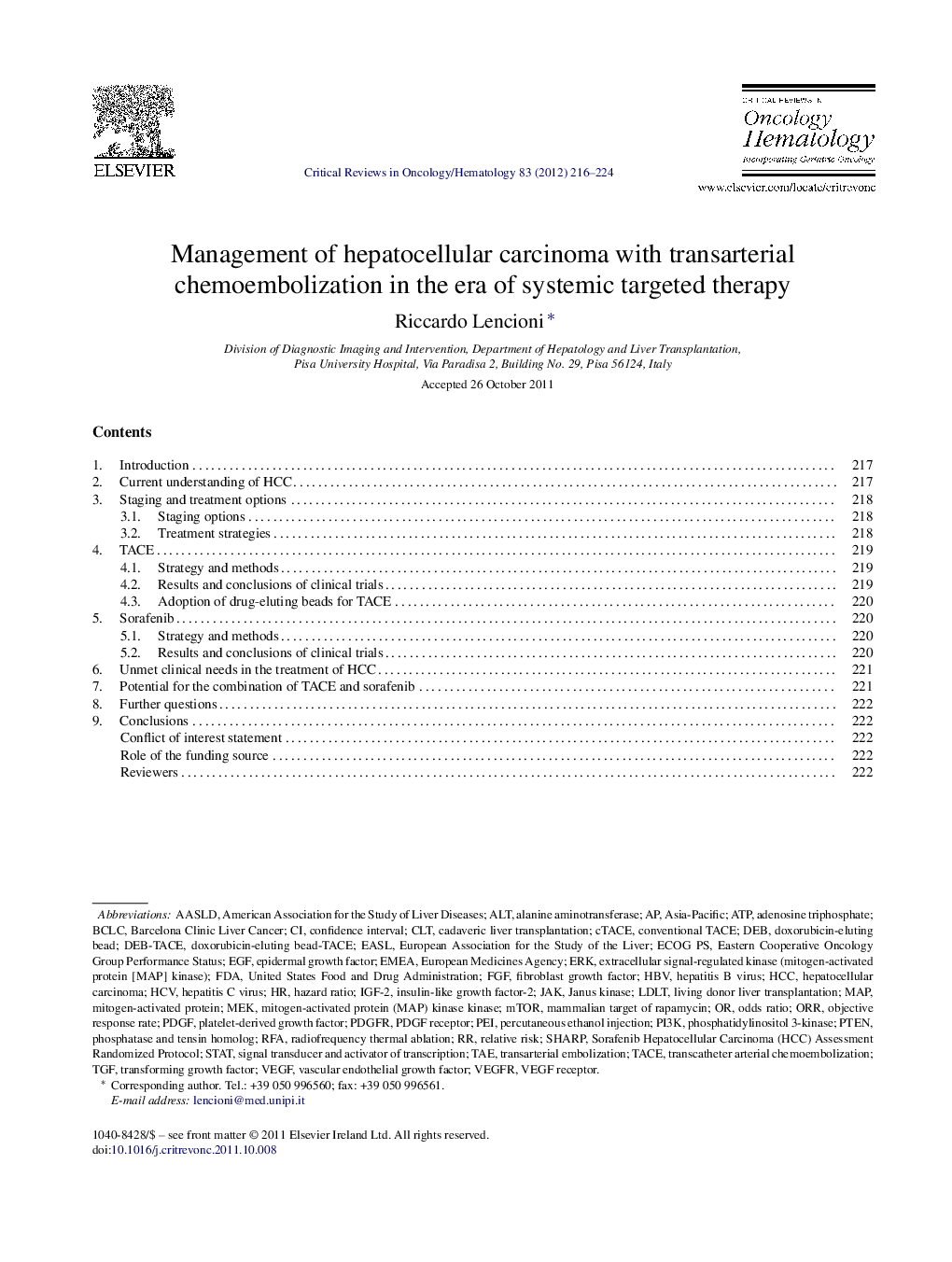| Article ID | Journal | Published Year | Pages | File Type |
|---|---|---|---|---|
| 3328991 | Critical Reviews in Oncology/Hematology | 2012 | 9 Pages |
The clinical management of hepatocellular carcinoma (HCC) is often complicated by poor liver function. Treatment options for intermediate- and advanced-stage disease are limited. Transcatheter arterial chemoembolization (TACE) is an effective first-line therapy for intermediate-stage HCC. By interrupting blood flow to the tumor and administering concentrated chemotherapy locoregionally, TACE induces necrosis at the tumor site, but may create conditions that permit or encourage angiogenesis and recurrence of the tumor. Combination of TACE with new targeted agents may be an effective way to treat intermediate-stage HCC, particularly in higher risk patients. Because of the efficacy and safety of sorafenib—the first systemic therapy to show significant clinical benefit in advanced HCC—there is great interest in its potential use in combination with existing treatment modalities. The synergistic combination of TACE plus sorafenib represents a promising opportunity for tumor control.
